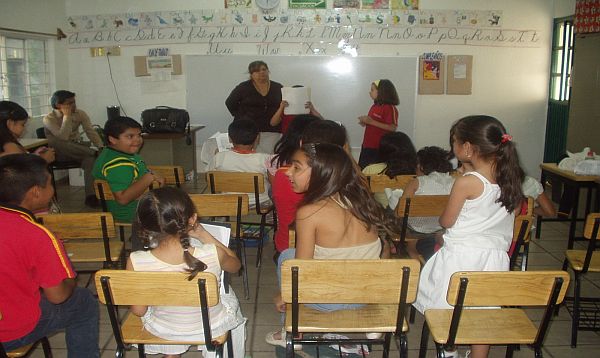Mexico City, Mexico - On Sunday, after an almost two month work stoppage, members of the dissident CNTE teachers union in the Mexico state of Oaxaca decided to end their strike which has left around 1.3 million children without classes since the school year began on August 19th.
The teachers voted to resume classes on Monday, October 14th in some 13,500 schools in that southern state.
Teachers from several states, including Oaxaca, have been protesting in the streets of the capital city for 49 days in an attempt to derail the education reform which was passed by the Mexican Senate and then signed into law by President Pena Nieto last month.
The protesting pedagogs twice blocked access to the airport, caused numerous major traffic jams, attacked and burned government and political party offices, and even managed to prevent lawmakers from attending a session of Congress.
The teachers had been camping out in Mexico City's historic Zocalo square until riot police dislodged them last month and they moved their camp to downtown's "Republic Square," where the monument commemorating the Mexican Revolution is located.
Despite the decision to return to work, the teachers who voted to end the strike determined that 20 percent of the membership would remain in the encampment at the Monument to the Revolution. In a press conference Ruben Nunez, the leader of CNTE, warned that they were not giving up their mobilization to have the education reform and its secondary laws repealed, and they will "start synchronized actions in the states under a single plan of action."
The new education reform strips union power over education and shifts the power to hire, fire, and evaluate teachers to the federal government. It requires teachers to undergo regular performance evaluations in order to maintain employment or receive promotions. It also put an end to the sale and inheritance of teaching positions.
The union argues the the reform violates their labor rights. They maintain that standardized testing fails to take into account the different work conditions in poverty-stricken states where many teach in makeshift classrooms to non-native Spanish speakers.
Source: AFP


